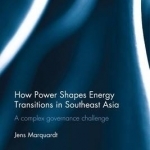How Power Shapes Energy Transitions in Southeast Asia: A Complex Governance Challenge
BookThis item doesn’t have any media yet
2016 | History & Politics
An understanding of the role of energy-related governance systems and the conditions required for a shift towards renewables in developing countries is urgently needed in order to tap into the global potential of low-carbon development. Although renewable energy sources have become technically feasible and economically viable, social and political factors continue to persist as the most critical obstacles for their dissemination. How Power Shapes Energy Transitions in Southeast Asia conceptualizes power for the field of sustainable energy governance. Based on empirical findings from the Philippines and Indonesia, the book develops an analytical approach that incorporates power theory into a multi-level governance framework. The book begins with a profound background on renewable energy development around the world and presents major trends in development cooperation. A power-based multi-level governance approach is introduced that is rooted in development thinking. Examining how coordination and power relations shape the development and dissemination of renewable energy technologies, the book also shows how decentralization affects low carbon development in emerging economies.
Sparking debate on the ways in which energy transitions can be triggered and sustained in developing countries, this book will be of great interest to students and scholars of renewable energy development and environmental politics and governance as well as practitioners in development cooperation.
Related Items:
| Published by | Taylor & Francis Ltd |
| Edition | Unknown |
| ISBN | 9781138677906 |
| Language | N/A |
Images And Data Courtesy Of: Taylor & Francis Ltd.
This content (including text, images, videos and other media) is published and used in accordance
with Fair Use.
